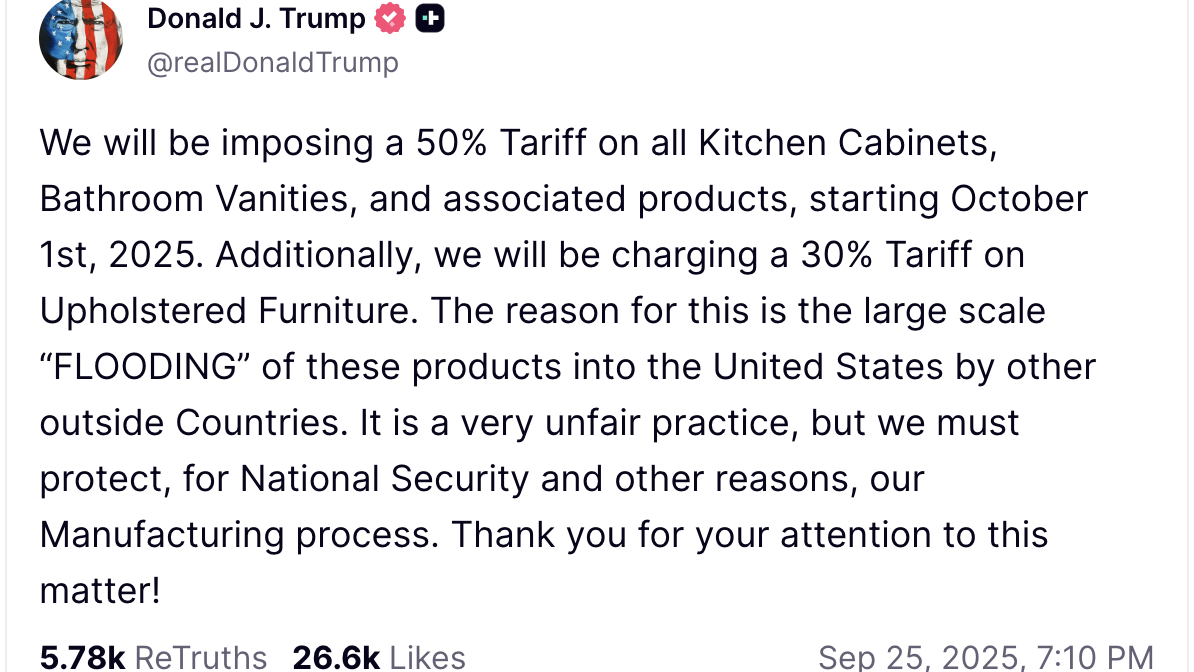President Donald Trump recently imposed a 50% tariff on kitchen cabinets and another 30% tariff on upholstered furniture to protect “National Security and other reasons.”
It’s as bonkers as it sounds. But it’s not the first time government officials have invoked national security for something absurd.
Here’s our current top five list of the dumbest things officials have done, or kept secret, ostensibly to protect national security:
- Vanity insanity. Trump’s invocation of “National security and other reasons” to levy tariffs on cabinets, vanities, and upholstered furniture wins our top spot (at least for now).
- Make Movies American Again. Trump also imposed a “100% Tariff on any and all Movies coming into our Country that are produced in Foreign Lands” because, allegedly, the American movie industry is under “concerted” attack led “by other Nations and, therefore, a National Security threat.” Read more from my colleague Caitlin Vogus about this preposterous announcement.
- That cosmo is classified. The Trump administration has taken national security claims to ridiculous new heights, but every administration is guilty of hiding silly information with a national security stamp. For example, the George W. Bush administration claimed that former Chilean leader Augusto Pinochet’s favorite drink was a national security secret. It made this absurd claim even though the information was already public. (Pinochet’s favorite cocktail was a pisco sour.)
- Christmas? Also classified. Michael Hayden, the former director of the CIA and the NSA, reports that an email he received simply wishing him “Merry Christmas” was also marked top secret — meaning its disclosure would cause “exceptionally grave” damage to national security.
- Dog days of declassification. During his first term, Trump’s administration tried to hide the gender of a dog that participated in the raid to kill ISIS leader Abu Bakr al-Baghdadi on the grounds the dog’s gender was a national security secret.
These examples are silly, but officials justifying their behavior — whether it is to impose tariffs or hide information — by blithely claiming national security is a serious problem, because it makes it easier for officials across the government to overclassify information. If a holiday greeting must be withheld to protect national security, then everything must be withheld to protect national security.
A straightforward fix would be to establish more precise definitions for classification categories.
Most classification decisions are subjective, relying on vague interpretations of “damage to national security” to bolster their claims.
Tighter definitions of the terms used to justify secrecy decisions should result in fewer secrets — and maybe even cheaper kitchen cabinets.





